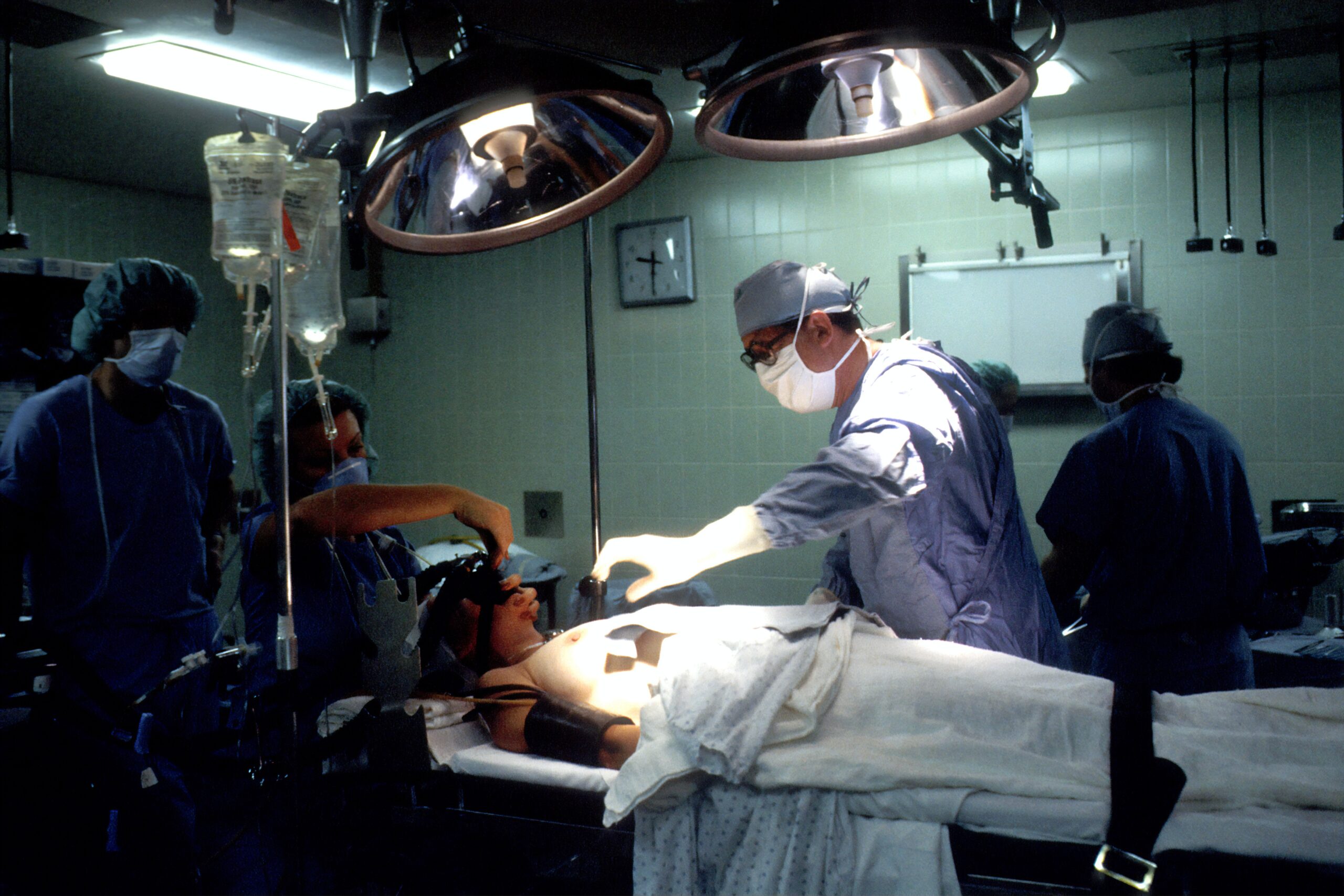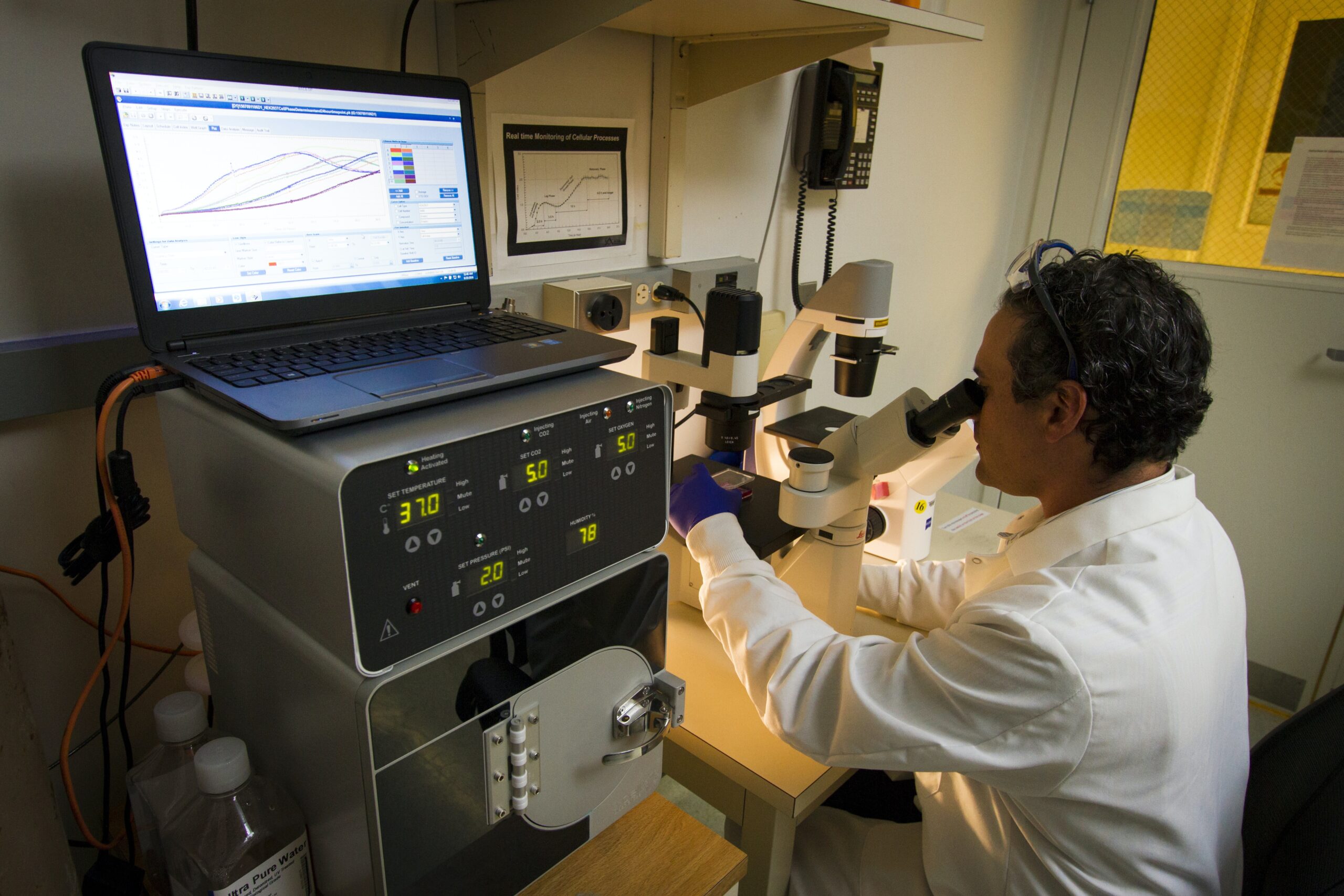If you're wondering whether adopting a healthy lifestyle can help lower the risk of prostate cancer, you're not alone. Prostate cancer is one of the most common forms of cancer among men, and its impact on their lives can be significant. However, there is growing evidence to suggest that making certain lifestyle choices can indeed reduce the likelihood of developing this disease. By maintaining a well-balanced diet, engaging in regular physical activity, and taking proactive measures to manage stress, you may be able to significantly decrease your risk of prostate cancer. So, let's dive into the details and explore how you can take charge of your health and potentially safeguard yourself against this prevalent form of cancer.
Understanding Prostate Cancer
Prostate cancer is a type of cancer that affects the prostate gland, which is a small walnut-shaped gland that produces seminal fluid. It is one of the most common types of cancer in men, but with early detection and appropriate treatment, the prognosis can be positive. In order to fully grasp the impact of prostate cancer and how to prevent it, it is important to define the disease and understand its prevalence and symptoms.
Defining Prostate Cancer
Prostate cancer occurs when the cells in the prostate gland start to multiply uncontrollably. These cancerous cells can then invade nearby tissues and spread to other parts of the body, such as the lymph nodes and bones. The exact cause of prostate cancer is still unknown, but it is believed to be a combination of genetic and environmental factors. While the majority of prostate cancers grow slowly, some can be more aggressive and require immediate medical attention.
Prevalence and Impact of Prostate Cancer
Prostate cancer is the second most common cancer in men worldwide, with over 1.4 million cases reported each year. In the United States alone, it is estimated that there will be around 248,500 new cases of prostate cancer in 2021. The impact of prostate cancer goes beyond the individual diagnosed. It can have a significant emotional and financial toll on the patient and their loved ones. Additionally, prostate cancer is the fifth leading cause of cancer-related deaths in men.
Identification and Symptoms
Identifying prostate cancer in its early stages is crucial for successful treatment. However, the early stages of prostate cancer often do not produce any symptoms. That is why regular screenings and check-ups are vital, especially for men over the age of 50. When symptoms do occur, they can include difficulty urinating, blood in the urine or semen, pain in the lower back, hips, or pelvis, and erectile dysfunction. It is important to note that these symptoms can also be caused by other non-cancerous conditions, so it is essential to consult a healthcare professional for an accurate diagnosis.
Factors Contributing to Prostate Cancer
While the exact cause of prostate cancer remains unknown, several factors have been identified that may contribute to its development. These factors can be classified into genetic, environmental, and lifestyle and dietary factors.
Genetic Factors
Research has shown that genetics plays a role in the development of prostate cancer. If you have a family history of the disease, particularly if a close relative like a father or brother has been diagnosed, you may be at a higher risk. Certain gene mutations have also been associated with an increased likelihood of developing prostate cancer. However, having a family history or gene mutation does not guarantee that you will develop prostate cancer.
Environmental Factors
Exposure to certain environmental factors may also increase the risk of prostate cancer. These factors include exposure to heavy metals, pesticides, and certain chemicals. Additionally, workplace exposure to cadmium, a heavy metal found in batteries, can be a risk factor. It is important to take necessary precautions and follow safety guidelines if you work in an environment that may expose you to these substances.
Lifestyle and Dietary Factors
Several lifestyle and dietary factors have been linked to an increased risk of prostate cancer. These factors include a high-fat diet, especially from animal sources, and excessive consumption of red and processed meats. On the other hand, a diet rich in fruits and vegetables, particularly those high in antioxidants and phytochemicals, has been associated with a lower risk of prostate cancer. Additionally, being overweight or obese and leading a sedentary lifestyle can also contribute to an increased risk of developing prostate cancer.

Connection between Lifestyle and Prostate Cancer
The impact of lifestyle choices on prostate cancer risk cannot be underestimated. Making positive changes to your lifestyle can significantly lower your risk of developing prostate cancer.
Impact of Physical Activity
Regular physical activity has been shown to reduce the risk of prostate cancer. Engaging in moderate to vigorous exercise, such as brisk walking, jogging, or swimming, for at least 150 minutes per week can have a significant impact. It is believed that exercise helps regulate hormone levels, improve immune function, and decrease inflammation, all of which can contribute to a lower risk of prostate cancer.
Role of Diet in Prostate Cancer
A healthy diet plays a crucial role in prostate cancer prevention. Consuming a diet rich in fruits, vegetables, whole grains, and lean proteins, while limiting the intake of high-fat and processed foods, can help lower the risk of prostate cancer. Certain nutrients, such as lycopene found in tomatoes and selenium found in nuts and seeds, have been associated with a reduced risk of prostate cancer. It is important to maintain a balanced diet that provides the necessary nutrients for prostate health.
Importance of Maintaining Healthy Weight
Being overweight or obese has been linked to an increased risk of prostate cancer. Excess body weight can lead to hormonal imbalances and inflammation, both of which can contribute to the development and progression of prostate cancer. Maintaining a healthy weight through regular exercise and a balanced diet is key in reducing the risk of developing prostate cancer.
Effect of Smoking and Alcohol Consumption
Smoking has been strongly linked to an increased risk of developing aggressive forms of prostate cancer. It is believed that the chemicals in tobacco smoke can damage DNA and impair the body's immune system, making it more susceptible to cancer. Similarly, excessive alcohol consumption can also increase the risk of prostate cancer. Limiting or avoiding tobacco and alcohol altogether can have a significant impact in lowering your risk of developing prostate cancer.
Physical Activity and Prostate Cancer
Engaging in regular physical activity can significantly reduce the risk of developing prostate cancer. Several types of exercises have been shown to be particularly effective in lowering this risk.
Exercises Reducing the Risk of Prostate Cancer
Both aerobic exercises and strength training have been associated with a lower risk of prostate cancer. Engaging in activities such as brisk walking, running, cycling, and swimming can help reduce the risk. Strength training exercises, such as lifting weights or using resistance bands, can also provide benefits. It is important to find activities that you enjoy and make them a regular part of your routine.
Frequency and Intensity of Exercise Needed
To lower the risk of prostate cancer, it is recommended to engage in moderate-intensity aerobic exercise for at least 150 minutes per week, or vigorous-intensity aerobic exercise for at least 75 minutes per week. This can be achieved by breaking down the exercise into smaller sessions throughout the week. Additionally, incorporating two or more strength training sessions per week can provide further benefits.
Research Supporting Physical Activity’s Role in Lowering Risk
Numerous studies have demonstrated the positive association between physical activity and a lower risk of prostate cancer. For example, a study published in the Journal of the National Cancer Institute found that men who engaged in high levels of physical activity had a 51% lower risk of developing advanced prostate cancer compared to those with low levels of physical activity. Another study published in the British Journal of Cancer showed that exercise can help improve the prognosis and survival rates of patients with prostate cancer. These findings highlight the importance of physical activity in prostate cancer prevention and management.

Diet and Prostate Cancer Risk
A healthy diet is a powerful tool in reducing the risk of prostate cancer. Certain nutrients and foods have been shown to have a positive impact on prostate health, while others should be consumed in moderation or avoided altogether.
Important Nutrients for Prostate Health
Several nutrients have been associated with a lower risk of prostate cancer. These include lycopene, a powerful antioxidant found in tomatoes and other red fruits, and selenium, a mineral found in nuts, seeds, and seafood. Both lycopene and selenium have been shown to have anti-cancer properties and can contribute to prostate health.
Foods to Include in the Diet
Emphasizing a diet rich in fruits, vegetables, whole grains, and lean proteins can help lower the risk of prostate cancer. Specific foods that have been linked to a lower risk include tomatoes, broccoli, green tea, fatty fish like salmon, and a variety of colorful fruits and vegetables. These foods are packed with nutrients and antioxidants that can support prostate health.
Foods to Avoid in the Diet
It is also important to limit the consumption of certain foods that have been associated with an increased risk of prostate cancer. These include red and processed meats, high-fat dairy products, and foods high in saturated fats. It is recommended to opt for lean protein sources, such as poultry and fish, and choose low-fat dairy options whenever possible.
Weight Management and Prostate Cancer
Maintaining a healthy weight is crucial in lowering the risk of developing prostate cancer. Obesity has been strongly linked to an increased risk, while weight loss and maintaining a healthy weight can have significant benefits in prostate cancer prevention.
Relationship between Obesity and Prostate Cancer
Obesity has been identified as a risk factor for prostate cancer. Excess body weight, particularly around the waistline, can lead to hormonal imbalances and inflammation, which can promote the development and progression of prostate cancer. It is estimated that obese men have a 20-30% higher risk of developing prostate cancer compared to men with a healthy weight.
Weight Loss Strategies for Prostate Cancer Prevention
Losing weight through a combination of a healthy diet and regular exercise can help reduce the risk of prostate cancer. Aiming for a gradual and sustainable weight loss of 1-2 pounds per week is recommended. This can be achieved by creating a calorie deficit through a balanced diet that emphasizes fruits, vegetables, whole grains, and lean proteins, while limiting the intake of high-fat and processed foods. Regular physical activity, including both aerobic exercises and strength training, should be incorporated into the weight loss plan.
Research Supporting Weight Management’s Role in Lowering Risk
Multiple studies have provided evidence of the link between obesity and an increased risk of prostate cancer. Conversely, weight loss and maintaining a healthy weight have been shown to have significant benefits in reducing the risk. For example, a study published in Cancer Epidemiology, Biomarkers & Prevention found that intentional weight loss was associated with a lower risk of prostate cancer. These findings highlight the importance of weight management in prostate cancer prevention.

Alcohol and Tobacco Impact on Prostate Cancer Risk
The impact of alcohol consumption and smoking on prostate cancer risk should not be overlooked. Making positive changes in relation to these habits can have a significant impact on reducing the risk of developing prostate cancer.
Effects of Alcohol Consumption on Prostate Cancer Risk
Excessive alcohol consumption has been linked to an increased risk of developing prostate cancer. Alcohol is a carcinogen that can damage DNA and impair the body's immune system, making it more susceptible to cancer. It is recommended to limit alcohol consumption to moderate levels, which means up to one drink per day for men.
Impact of Smoking on Prostate Cancer Risk
Smoking has been strongly associated with an increased risk of developing aggressive forms of prostate cancer. The chemicals found in tobacco smoke can damage DNA and impair the body's immune system, making it more susceptible to cancer. Quitting smoking is essential in reducing the risk of prostate cancer, as well as improving overall health and well-being.
Benefits of Quitting Smoking and Limiting Alcohol
Quitting smoking and limiting alcohol consumption can have numerous benefits in reducing the risk of prostate cancer. Quitting smoking improves lung function, reduces the risk of heart disease, and lowers the risk of numerous types of cancer, including prostate cancer. Limiting alcohol consumption not only reduces the risk of prostate cancer but also improves liver function and lowers the risk of other alcohol-related cancers. Taking steps to quit smoking and moderate alcohol consumption can have a profound impact on prostate cancer prevention.
Stress Management and Prostate Cancer
Chronic stress has been linked to an increased risk of developing prostate cancer. Managing stress and incorporating stress management techniques into your daily routine is essential for a healthy lifestyle and reducing the risk of prostate cancer.
Impact of Chronic Stress on Prostate Cancer
Chronic stress can negatively impact the body in various ways, including increased inflammation, hormonal imbalances, and impaired immune function. These factors can contribute to the development and progression of prostate cancer. It is important to find healthy ways to manage stress and reduce its impact on your overall health.
Stress Management Techniques
Incorporating stress management techniques into your daily routine can help reduce the risk of developing prostate cancer. These techniques can include physical activity, such as exercise or yoga, relaxation techniques like deep breathing or meditation, spending time in nature, engaging in hobbies, and seeking support from friends, family, or a mental health professional. Finding the techniques that work best for you and making them a regular part of your routine can have a positive impact on your overall well-being.
Studies Supporting Stress Management for Lowering Prostate Cancer Risk
Several studies have provided evidence of the link between chronic stress and an increased risk of prostate cancer. Conversely, stress management techniques have been shown to have significant benefits in reducing the risk. For example, a study published in the Journal of Clinical Oncology found that stress management interventions in men with prostate cancer improved quality of life and reduced symptoms of depression and anxiety. These findings highlight the importance of managing stress for prostate cancer prevention and overall well-being.
Role of Regular Medical Check-ups
Regular medical check-ups, including prostate examinations and screenings, are essential for early detection and successful treatment of prostate cancer. Understanding the importance of these check-ups and being aware of the available screening tests and their results is key in maintaining a proactive approach to prostate health.
Importance of Regular Prostate Examinations
Regular prostate examinations, such as digital rectal exams (DRE), are important for early detection of prostate cancer. During a DRE, a healthcare professional can feel for any abnormalities or changes in the prostate gland. It is recommended that men discuss the frequency and timing of prostate examinations with their healthcare provider, as individual risk factors and family history can influence the need for more frequent screenings.
Screening Tests for Prostate Cancer
In addition to regular prostate examinations, there are specific screening tests available for prostate cancer. The most common screening test is the prostate-specific antigen (PSA) blood test. PSA is a protein produced by the prostate gland, and elevated levels can indicate the presence of prostate cancer. It is important to note that an elevated PSA level does not confirm the presence of cancer, but it can warrant further investigation.
Understanding the Results of Prostate Screenings
Understanding the results of prostate screenings requires consultation with a healthcare professional. If a DRE or PSA test raises concerns, a doctor may order further diagnostic tests, such as a biopsy, to confirm the presence of cancer. It is essential to discuss the results with a healthcare provider who can provide accurate information, answer any questions, and guide you through the next steps.
Conclusion: Can a Healthy Lifestyle Lower the Risk of Prostate Cancer?
In conclusion, adopting a healthy lifestyle can have a significant impact on lowering the risk of developing prostate cancer. Making positive changes in areas such as physical activity, diet, weight management, alcohol and tobacco consumption, stress management, and regular medical check-ups can all contribute to a lower risk of prostate cancer. By understanding the factors contributing to prostate cancer, implementing lifestyle changes, and staying proactive about prostate health, you can strive towards reducing your risk and maintaining optimal well-being.
Key Lifestyle Changes for Prostate Cancer Prevention
The key lifestyle changes for prostate cancer prevention include engaging in regular physical activity, maintaining a healthy weight, consuming a balanced diet rich in fruits and vegetables, limiting alcohol consumption, avoiding tobacco, managing stress, and scheduling regular medical check-ups.
Success Stories and Case Studies
There have been numerous success stories and case studies highlighting the positive impact of a healthy lifestyle on reducing the risk of prostate cancer. These stories demonstrate the potential of lifestyle changes to improve overall health, well-being, and prostate cancer outcomes. By following in the footsteps of those who have achieved success, individuals can inspire themselves to make the necessary changes and reap the benefits.
Final Thoughts on Prostate Cancer and Lifestyle Factors
Prostate cancer is a significant health concern, but through education and making positive lifestyle choices, it is possible to lower the risk and improve overall prostate health. By understanding the various factors contributing to prostate cancer, individuals can take proactive steps towards prevention. Remember, it is never too late to make positive changes and prioritize your well-being.
